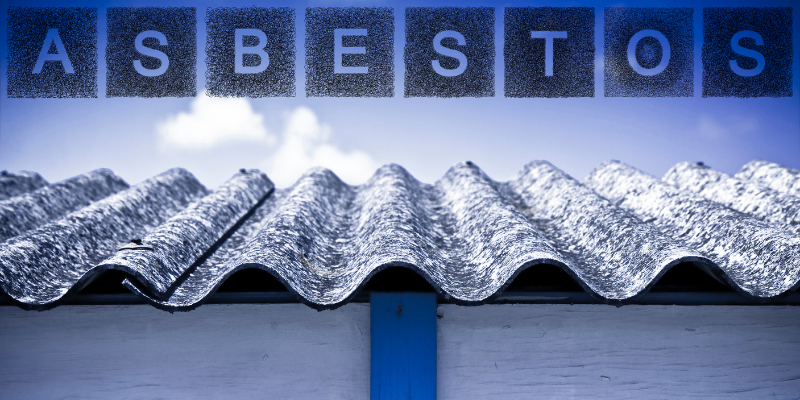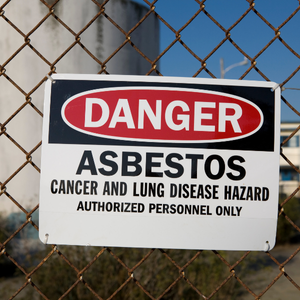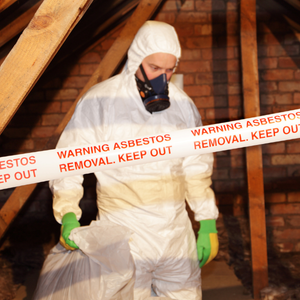
Selling a house with asbestos in Pennsylvania involves complex legal, health, and safety concerns. As a once widely used construction material, asbestos poses health concerns when it is disturbed. If homeowners are considering selling a property containing asbestos, they should understand the laws in the state, as well as any possible asbestos removal and safety remediation. The goal is to meet Pennsylvania regulations to ensure the safety of future occupants from asbestos exposure. Nura Home Buyers is here to assist you with these. The guide consolidates necessary and practical information as it relates to the selling and buying of homes in Pennsylvania. It is a valuable resource for both sellers and buyers in the state.
Brief Overview
Selling an asbestos-contaminated property in Pennsylvania entails additional legal, health, and safety hurdles that must be balanced with state laws. Most homeowners must learn about the health risks of asbestos, hire qualified inspectors to test the property, and hire asbestos removal contractors to prevent exposure. On the legal side, homeowners must disclose the presence of asbestos to prospective buyers and provide a legal recap and any test results. Real estate laws and legal property value maintenance necessitate professional management, even though some people may attempt to handle the situation themselves. We buy houses in Pennsylvania and adjacent areas. We must provide reasonable management and proper disclosures for a successful and safe transaction.
Key Highlights
- Health risks like lung cancer and mesothelioma from asbestos affect home sale marketability and legal requirements.
- In Pennsylvania, asbestos disclosure is essential for compliance and buyer trust in real estate transactions.
- Accurate asbestos detection and management require certified inspectors and professional removal services, which improve property safety.
- To ensure safety and compliance, DIY asbestos management requires caution, proper equipment, and legal disclosure.
- Estate attorneys help Pennsylvania homeowners sell asbestos-contaminated homes legally and avoid liabilities.
Understanding Asbestos and Its Impact on Home Sales

The presence of asbestos complicates real estate transactions more than almost any other type of hazard. After all, asbestos was widely used for its fireproofing capabilities. Nevertheless, the risks associated with exposure to this material do come into play, especially for homeowners in Pennsylvania who want to sell their homes. Understanding the various ways in which this material affects real estate transactions is extremely important. As such, this text will discuss the fundamentals of asbestos, its continuing relevance, and the health risks it poses.
What Is Asbestos, and Why Is It a Concern?
Asbestos is a recognized and naturally occurring mineral that was widely incorporated into insulation and other building materials, such as roofing and tiles, due to its heat resistance and durability characteristics. Although asbestos materials that are in good condition do not pose a risk, that all changes once renovations are made or as materials age and deteriorate. When asbestos becomes airborne in tiny particles, it creates dangerous conditions that pose a serious issue to homeowners. Homeowners or sellers of older structures that contain such materials must be knowledgeable of the risks and the legal ramifications that accompany asbestos, and such situations almost always require the help of a specialist.
Missives regarding the presence of asbestos in a property have the potential to affect the marketability of a home, heighten or lower the value, and even influence negotiations in a real estate transaction. Inspecting and clarifying the condition of any and all asbestos-containing materials prior to a transaction often drives the negotiations. Knowledge of the various mitigation and remediation options is vital, as proper management inspires a level of confidence in potential buyers and reduces the asbestos risk. Transactions, in part, are able to close with the introduction of price changes or with the transaction in its entirety, based on the condition of the asbestos. Selling and buying real estate should come with informed decisions, and all participants must prioritize health and safety regulations.
Health Risks Associated with Asbestos Exposure
Health concerns regarding asbestos affect the housing industry, especially during renovations or demolitions, when the harmful fibers become airborne. Asbestos fibers, when inhaled, can cause lung cancer, mesothelioma, and asbestosis, all of which can take decades to develop after the first exposure. As mesothelioma, which can take decades to develop, is the only cancer caused by asbestos, it is almost invariably diagnosed at a late stage. Asbestosis, which is permanent, causes considerable long-term respiratory difficulties due to the scarring of lung tissue and chronic lung-breathing-asthma scarring fibers.
Finally, the concerns regarding asbestos and the associated health risks profoundly impact real estate transactions. Today’s buyers are more educated and less likely to accept the “as is” condition of a property. Sellers need to be transparent and disclose the presence of asbestos, obtain a proper disclosure statement, certified inspections, and, when needed, remediation to regain buyer confidence. As the buyer will need to sell their property, the state protects the buyer by requiring the seller to hand over all known information regarding asbestos. Risks justify these responses, not to mention the protection of public health as well as the health of the property owner.
Legal Considerations for Selling a House with Asbestos
Selling a home where asbestos is present in Pennsylvania can present legal challenges. When selling a home, the owner must follow the laws regarding asbestos disclosure in the state. Complex cases do need to be consulted with the estate attorney. Not disclosing the presence of asbestos can lead to a fatal lawsuit; hence, knowing the legal consequences is the key to a successful sale. This encompasses the legal consequences of leaving asbestos unremediated, to assist the seller in deciding if it should be remediated prior to listing the home. If the seller is seeking an easier way to deal with the asbestos, selling the home to a cash home buyer in Philadelphia or nearby areas can help.
| Key Legal Requirement | Role of Estate Attorney | Asbestos Disclosure Process | Buyer’s Rights |
|---|---|---|---|
| Mandatory Asbestos Inspection | Advises on Contract Clauses | Provide Detailed Asbestos Reports | Right to Request Further Testing |
| Disclosure Compliance | Ensures Legal Compliance | Disclose Before Signing Agreement | Negotiate Repairs or Remediation |
| Remediation Obligations | Guidance on Liability | Include in Sale Agreement | Option to Withdraw Offer |
This table summarizes the legal requirements and processes for selling asbestos-contaminated homes in Pennsylvania, protecting seller and buyer interests.
Consulting an Estate Attorney for Guidance
Selling an asbestos-containing property in Pennsylvania is complicated, and in these instances, an attorney is needed. This is because an attorney will understand both state and federal regulations pertaining to asbestos. An attorney will help asbestos sellers understand their legally required disclosures and help limit legal exposure. An attorney also helps homeowners understand how the asbestos findings affect the sale and guides them in the inspection and documentation process required and all disclosures required to be made under Pennsylvania law. An attorney’s involvement also reduces the chances of mistakes that may jeopardize the transaction or later result in litigation.
Estate attorneys also assist in developing arguments to alleviate buyers’ concerns. Moreover, estate attorneys craft legal arguments to mitigate buyers’ anxiety and subsequently assist in negotiating the intermediary terms related to asbestos issues, such as remediation or a sale price adjustment. Moreover, estate attorneys develop legal arguments to alleviate buyers’ anxiety and subsequently assist in negotiating the intermediary terms related to asbestos issues for remediation or a sale price adjustment. Moreover, estate attorneys develop legal arguments to alleviate buyers’ anxiety and subsequently assist in negotiating the intermediary terms of asbestos issues for remediation or a sale price adjustment.
Disclosure Requirements for Asbestos in Pennsylvania
Pennsylvania individuals selling real estate must warn potential buyers of any known asbestos. Sellers must disclose the presence of asbestos-containing materials such as insulation, shingles, or other building components. Without this information, they may face legal action. Because of this liability risk, property owners should have the property professionally inspected prior to listing. The inspection should provide sufficient information for owners to complete the necessary state disclosure documents, which detail the location of the asbestos, its condition, and any remediation attempts.
Generally, sellers feel less burdened by the legal interpretations of the disclosure law if they have assistance from real estate professionals. Sellers receive help with the asbestos inspection results, the coordination of all legal requirements, and the potential impact of the findings on the sale. Proactive monitoring of changes to the Pennsylvania disclosure law helps mitigate risk. Home sellers who provide complete disclosure help support a confident buying experience and thus have a higher likelihood of meeting their real estate transaction goals.
Inspecting and Testing for Asbestos

For selling homes in Pennsylvania, knowing whether there is asbestos in your home is key to compliance and safety. Inspecting and testing asbestos is part of assessing the risks this harmful material poses. An inspection considers the condition of asbestos materials, and testing confirms the material’s presence; otherwise, sellers are guided in detailed reports to indicate absence. Having dependable asbestos inspection and testing procedures in place helps guarantee that homes are secure and the selling process is seamless. This section aims to describe how to go about these and choose qualified inspectors for comprehensive assessments.
Asbestos Testing Procedures
When it comes to real estate transactions, proper asbestos checking is important so a home can pass Pennsylvania’s health and safety standards. This process begins with a detailed visual inspection to find materials associated with asbestos, like insulation, tiles, and roofing. Inspectors also look for deterioration that could lead to the release of airborne fibers. Once these suspect areas are found, trained professionals are able to collect the samples without cross-contamination. These samples are sent to accredited laboratories to determine the type and concentration of asbestos, which becomes the basis of the official asbestos report used in home sales.
As a property seller, you want to ensure full legal compliance, which is underscored by well-documented results. These results also help determine buyer confidence. This is important since the results of the test can help determine the negotiation terms. Keeping informed of the changes in standards and guidelines of testing is also important for legal compliance to ensure long-term safety and rapid testing for future transactions. Professional inspectors are able to help with these changes and recommend ways to manage asbestos, which is beneficial for the homeowner since it adds value to the property. They can also provide guidelines to help keep the home and the homeowner safe.
Choosing a Certified Asbestos Inspector
For Pennsylvania homeowners planning for a sale, the first step in assessing the asbestos-related risks is choosing a qualified asbestos inspector. A dependable inspector will produce a quality report detailing the inspector’s findings that will guide negotiations and serve to satisfy state requirements. Verification of proof of certifications, qualifications, testimonials, and experience is vital in the selection process. Selection of professionals possessing current testing tools and industry procedures is a plus. A competent inspector identifies the asbestos in the inspected premises and offers practical recommendations for remediation.
An unhindered flow of examination processes is necessary. Each step of the examination, the preliminary assessment, sampling, reporting methods, and outcomes is to be explained by a qualified inspector. This will aid the homeowners in formulating a response, in the event that the inspector identifies asbestos, to their plans. Appropriate disclosure is a supporting document in strengthening the seller’s negotiating position in the sale. Pennsylvania is a seller’s market; its asbestos regulations rival the strictest nationwide. Such a document will also serve to protect the value of the property and facilitate a sale in compliance with the law.
Asbestos Remediation Options

Depending on how a homeowner in Pennsylvania resolves their asbestos problems, they will need to learn about their different remediation options. How a homeowner resolves their asbestos problem will influence how safe a property will be to inhabit, how sellable it will be, and, in some cases, how much it will sell for. This part will discuss various methods professionals use to remove asbestos, what licensed asbestos pros do for clients, and how homeowners can manage asbestos themselves in a safe and legal way.
Professional Asbestos Removal Techniques
As is the case in many states, in Pennsylvania, the law requires home and business owners to hire certified professionals to handle asbestos in the home. Licensed professionals conduct detailed inspections to locate and evaluate insulation, tiles, roofing, and other materials for asbestos, as is required to comply with state and federal regulations. Identified crews will then apply state-of-the-art methods and tools that incorporate enclosure systems and negative air pressure to eliminate the risk of fiber release. Workers and apartment residents are protected by full PPE (Personal Protective Equipment). The workers have PPE decontamination systems to return to the site for ongoing project containment to ensure the environment is clean throughout the project.
Professional services are also responsible for legally compliant waste disposal, provision of legally required documentation for all the work done, and provision of detailed reports that can prove to be useful for the owner in land title transactions. Their experience enables them to customize methods for the different asbestos materials. Having professional asbestos removal means that the owner will also be able to pass the property to the next owner in compliance with all regulations in the state of Pennsylvania. Compliance includes the provision of all required documentation for a successful land transaction.
DIY Tips for Managing Asbestos Safely
When considering DIY asbestos management, the foremost concern is the safety, health, and least disturbance of the asbestos area. Although there is the option of professional asbestos removal, some owners of non-friable materials might choose the management option, which is legal with caution. The first step is to learn the risks and legalities associated with Pennsylvania and the potential disclosure warning when selling your home. Proper asbestos management requires safety equipment like HEPA respirators and disposable coveralls. As well, the workspace should be isolated and well-ventilated. The foremost step is to identify non-friable asbestos, as disposal of these materials will release deadly asbestos fibers if handled inefficiently.
Common DIY management steps consist of encapsulating asbestos with specialized approved sealants to contain any asbestos fibers. Activities that create sanding, drilling, and other abrasive materials must also be avoided, as these materials are most likely to create a hazard. For sealing hazardous asbestos materials, tools must be cleaned with an HEPA vacuum. Your actions must be noted for future reference for any potential home sale disclosures. Although there are potential DIY management solutions, there is no substitute for professional asbestos removal, especially for homes selling on the market. Compliance with the law protects the household and prospective buyers.
While selling a house with asbestos in Pennsylvania is possible, legal compliance and honesty with prospective buyers are most important. Sellers can recommend that the buyers consult asbestos professionals on their removal, and this will help your buyers and also help you mitigate the risk. Pennsylvania’s real estate laws require disclosure because asbestos is a health hazard. If managed, communicated, and appropriately coordinated, the selling process can provide a safe and informed transaction for the seller and target buyers. Don’t hesitate to contact Nura Home Buyers for help with a more tailored approach.
Are you facing the challenge of selling a house that contains asbestos? You don’t have to handle it alone. If you want to avoid repairs, speed up the selling process, or choose a stress-free alternative to traditional listings, Nura Home Buyers is here to assist. We make fair cash offers for homes as-is and manage the entire transaction from start to finish. Have questions or ready to move forward? Call us at (610) 550-8365 for a no-obligation offer and get started today
FAQs
What are the legal requirements for selling a house with asbestos in Pennsylvania?
Sellers in Pennsylvania must disclose asbestos to buyers. Certified testing reports validate this. A professional removal service is recommended to comply with state laws and protect the interests of both the seller and the buyer.
What health risks does asbestos pose?
Exposure to asbestos causes lung cancer, mesothelioma, and asbestosis. To protect current and future residents, homes must manage asbestos properly. These conditions often appear years after exposure.
Do asbestos levels affect home sales?
It may be necessary to inspect and negotiate the price of a home with asbestos. Understanding and communicating with buyers can help sellers handle these conditions.
Why is hiring certified professionals for asbestos management important?
Certified professionals ensure legal and safe asbestos inspection and removal. Effective reports, safe removal, and property value maintenance are essential for a successful home sale.
What are some options for asbestos remediation?
Professionals can remove, encapsulate, or seal asbestos. Professional services are recommended for compliance and safety, but DIY is possible in less risky situations.
Helpful Pennsylvania Blog Articles
- Can You Sell a House with a Lien in Pennsylvania?
- Can You Sell a House With Asbestos in Pennsylvania?
- How to Do Sale by Owner in Pennsylvania
- How Does Selling a House with a Mortgage Work in Pennsylvania
- Can You Sell House with Tenants in Pennsylvania?
- Capital Gains Tax After Selling a Home in Pennsylvania
- How Long After an Appraisal Can You Close in Pennsylvania
- Selling a Home That Needs Repairs in Pennsylvania
- How to Do a Quit Claim Deed on a House in Pennsylvania
- How Much Does It Cost to Sell a House in Pennsylvania?

